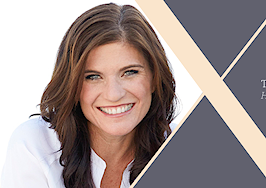As a team leader and the national director of the Compass Sports & Entertainment Division, Kofi Nartey is well-versed in helping his luxury real estate clients manage their wealth portfolios. “The biggest challenge we face, I think, is helping clients understand our role as a wealth adviser — because they already have wealth advisers,” Nartey notes. “But because real estate is such a huge component of their portfolios, we inevitably are advising them on wealth accumulation, wealth distribution and diversifying their portfolios.”
Nartey will be on stage at Luxury Connect, October 16 through 18 at the Beverly Wilshire Hotel in Beverly Hills, to share more details about becoming a wealth adviser to the stars.
Being a wealth adviser at this level of real estate, Nartey explains, “is a lot like general wealth advising — you’re not going to save for your kids’ college through an investment that you can’t access until you’re 65 if you’re only 30. We utilize our industry expertise and knowledge.”
And working with the clients’ other wealth advisers takes a team approach, he adds. “I played football in school and growing up — I’m used to working with a team where each person has a role. Sometimes they’re overlapping roles, but you know that they need the expertise that you bring and how your expertise contributes to the team. It’s not at all adversarial; you’re working together for the client.”
Hear what else Nartey has to say about becoming a real estate wealth adviser at the highest level of the business at Luxury Connect, October 16 through 18 in Beverly Hills.
What do you think the luxury agent of the future looks like?
When you think of the word future, you tend to think of technology, and the luxury agent of the future will utilize technology to enhance the luxury service levels that they provide their clients. Luxury is still very service-driven; any luxury experience whether it’s real estate related, restaurant, shopping, it’s a combination of service and expertise. Some of these companies that are coming in and commoditizing the process and transaction, they’re missing the level of service. It makes it more efficient, seamless, interactive process; it makes us smarter at our jobs because we can access information more efficiently and with more accuracy, and we’re better able to then interpret that data for our clients because that’s the service we provide.
What do you feel are the challenges facing the luxury market this year?
We’re seeing a shift, a little bit, in the market. The pricing has gotten ahead of itself in many segments of the luxury market, with other factors coming into play whether it’s interest rates, tax ramifications, we’re seeing buyers sitting a little bit longer before pulling the trigger. That combination of buyer being a little less motivated and sellers pricing a little too high leads to some softening in the market.
What are some of the biggest problems you’ve faced in growing your business?
Managing client expectations in a shifting market can be a challenge. You have to have five ways to answer the same question, ways to get them to understand and even convince them beyond your words alone and rapport. You have to have market stats, the comps, your negotiating skills have to be up to par, you sometimes have to get them in the car and show them where the market is going with other properties.
How has technology changed your business, and what are you most intrigued by that you’re not currently using?
It comes back to what I said before — it’s made my business more efficient. We’re able to service our clients better and faster with more access to information. It’s not zero-sum either, it’s not like technology or no technology. I made up a term that I use in my presentation, tech luxe, technology empowering the luxury experience, and that’s what’s made our business better.
Most of the tools that have been most helpful are the Compass tools — everything from our Collections, Market Insights, agent networking tools, those are things that we use to serve clients. I don’t have any on my radar in terms of what I’ve seen, everything I’ve seen is being used, it’s just a matter of if it applies or not I think we’re going to see more virtual reality; we’re starting to see that already but I think we’ll see more of it, primarily because for the luxury consumer, their boundaries are much greater. They’re buying from coast to coast and they’re shopping from coast to coast, so if you can bring an enhanced shopping experience to them, you’ll have an advantage.
What’s the question you hear most from your clients? And what’s your answer to them?
The question that’s usually the broadest, most general question is “How’s the market?” And my answer is always, first, “It’s a tale of many markets,” and the second part of my answer is a question, “It depends on which market you’re referring to.” The more modestly priced properties are still selling well; you get multiple offers on $1 million and $2 million, and as you go into the high end market segment they’re sitting, and the ultra-high-end homes will sit for some time because we’re shifting at the higher end. It really depends on the market segment; if someone gives a canned answer, you should beware.















